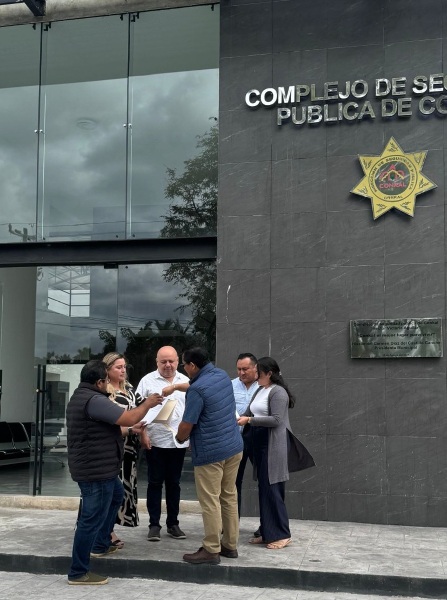On Wednesday, February 5, Conkal Mayor Linda Margarita Pérez Quijano filed a second criminal complaint with the Attorney General’s Office against her predecessor and other former municipal officials.
The complaint concerns the construction of the Security Complex on private land, now claimed by its rightful owner.
According to the complaint document obtained by Diario, the accusations include omission of duties and failure to fulfill responsibilities by all those involved in executing the public project. The land is not owned by the municipality.
Mayor Pérez declared on January 26 that the Conkal City Council might lose the Security Complex (C-4), which was built with an investment of 16,600,613.25 pesos during the previous mayor’s administration. The current owner of the land demands its return and has warned that the facilities could be demolished.
On February 3, Diario reported that the Conkal City Council had filed a complaint with the Federal Superior Audit Office against the former mayor and four former municipal officials. Then, on February 5, a second complaint was filed with the FGR regarding the use of federal resources for constructing the C-4, particularly questioning the use of the Fund for Contributions to Strengthen Municipalities.
The former officials accused include the trustee in office at the time of the work’s approval and execution, the former secretary of the City Council, the former director of Public Works, the former head of the Comptroller’s Office, and the former municipal treasurer.
The documentation review revealed irregularities in the contract for the work, signed on December 11, 2023. Essential requirements for validity were not met, including the absence of deeds proving municipal ownership of the land.
The former comptroller is also accused of acting with malice, premeditation, and advantage by not disclosing in City Council handover meetings that the Security Complex lacked public deeds or was built on private land. Additionally, it is alleged that this information was concealed by classifying the records as “reserved information.”
This ongoing legal battle highlights the need for accountability and transparency in public works projects.
Source: Diario de Yucatan




